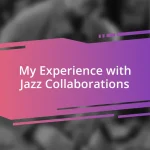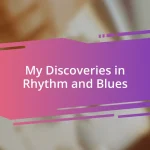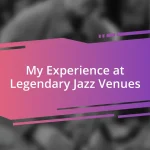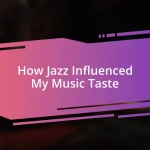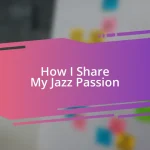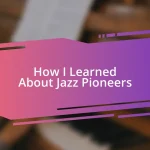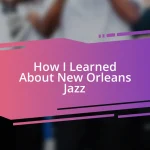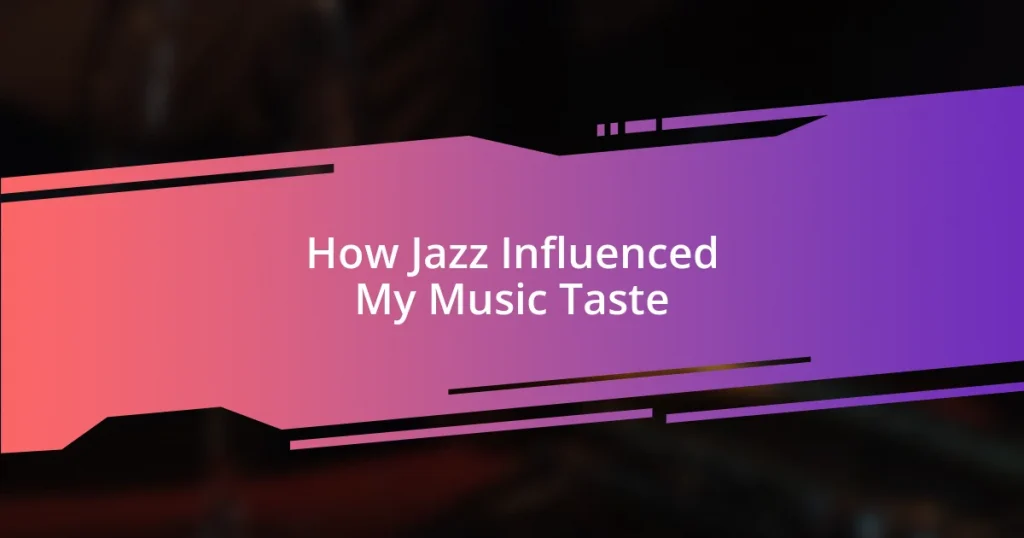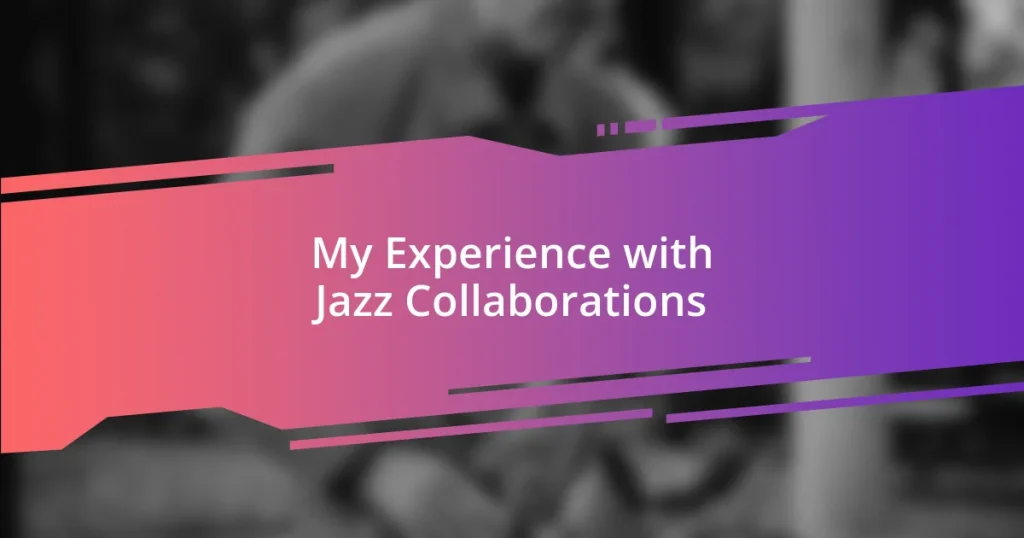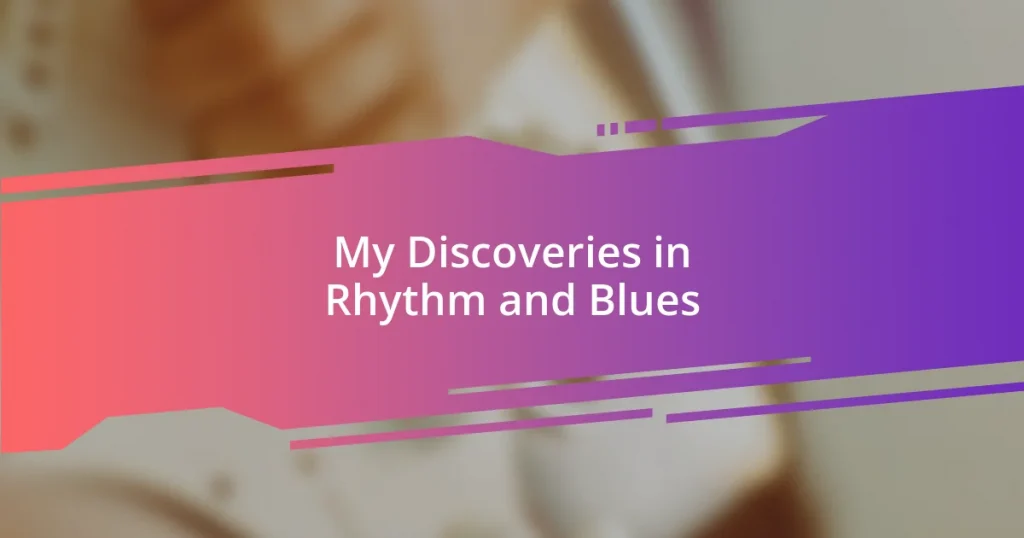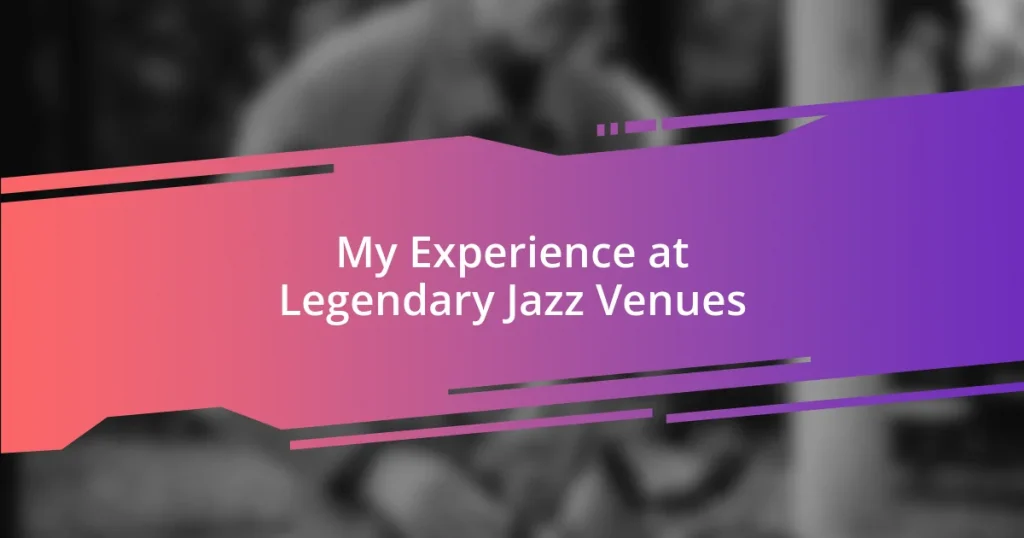Key takeaways:
- Jazz originated from the blend of African and European musical traditions in New Orleans, with a strong emphasis on improvisation and emotional expression.
- Live jazz performances create a communal experience that deeply impacts listeners and shapes their appreciation for the genre.
- Jazz has significantly influenced the author’s songwriting, promoting spontaneity, emotional storytelling, and the effective use of silence in music composition.
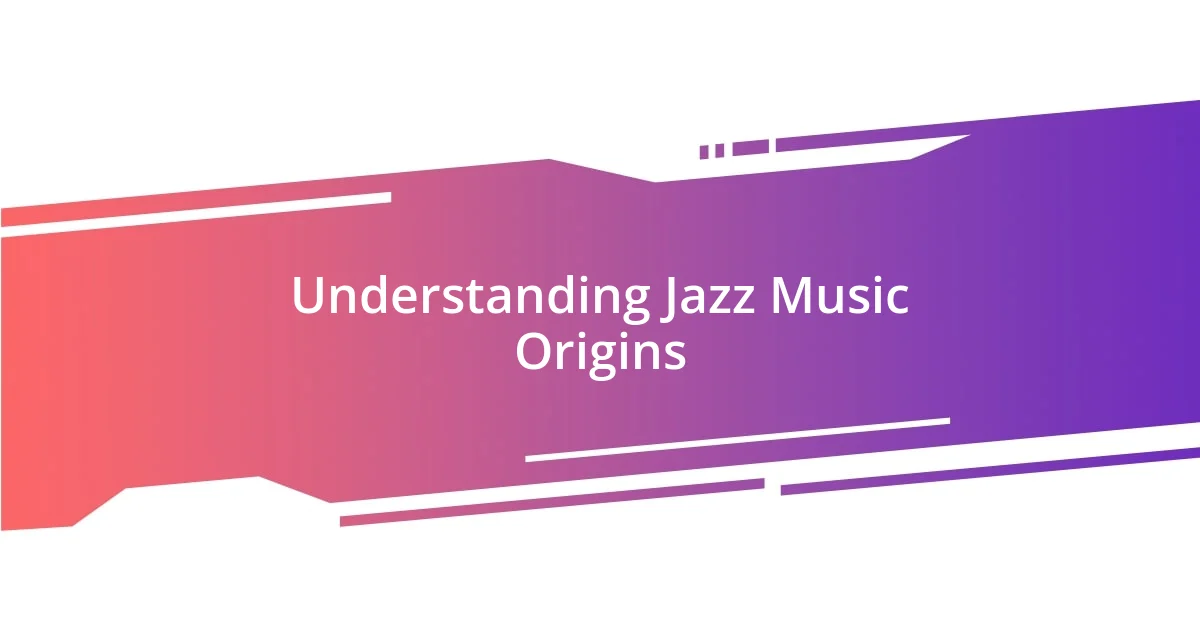
Understanding Jazz Music Origins
Jazz music has roots deeply embedded in African American history, emerging from the vibrant cultural melting pot of New Orleans in the late 19th and early 20th centuries. When I first learned about its origins, I couldn’t help but feel a sense of reverence for the resilience of the musicians who blended African rhythms with European musical traditions. Isn’t it fascinating how these diverse influences coalesced into something so expressive?
As I delved into jazz’s history, I discovered the crucial role of improvisation, a technique that allows musicians to spontaneously create music in the moment. It reminded me of my own experiences playing music, where I often felt a rush of exhilaration when I let go of the structure and just allowed my creativity to flow. Have you ever experienced that moment where everything just clicks, and you become one with your music?
The emotional depth found in jazz is also a reflection of the struggles and triumphs of its creators. Listening to the soulful tones of a saxophone or the rhythmic pulse of a drum can evoke powerful emotions, transporting you to another time and place. Each note often carries a story, and as I connected with those narratives through my own musical journey, I began to appreciate the profound legacy that jazz has left on countless genres, myself included.
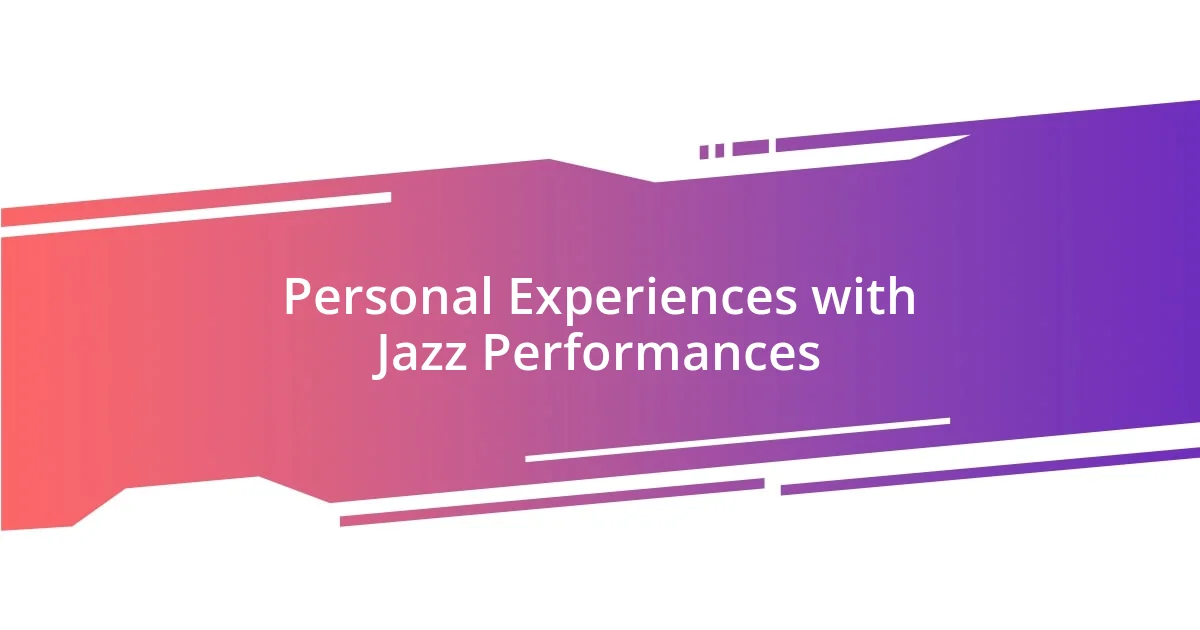
Personal Experiences with Jazz Performances
There’s something magical about experiencing jazz performances live. I remember attending a small, intimate show in a local club where the atmosphere was thick with anticipation. As the band took the stage, the rhythms seemed to wrap around me like a warm embrace, and I felt a deep connection not just with the music but with everyone around me, sharing that moment together.
- The way the saxophonist effortlessly bent notes sent chills down my spine.
- I noticed how the bass player locked eyes with the drummer during solos, their silent communication creating a palpable energy.
- At one point, the pianist launched into a dazzling improvisation, and the audience collectively gasped, lost in the wonder of the creativity unfolding before us.
Each performance has left an indelible mark on my music taste. I often find myself reflecting on a particular evening when I witnessed a legendary jazz trombonist. His sheer passion was intoxicating, and the crowd was swept away in an emotional tsunami, moving together in rhythm, as if caught in the tide of the music. It made me realize how jazz isn’t just a genre; it’s an experience that grabs you by the heart and soul.
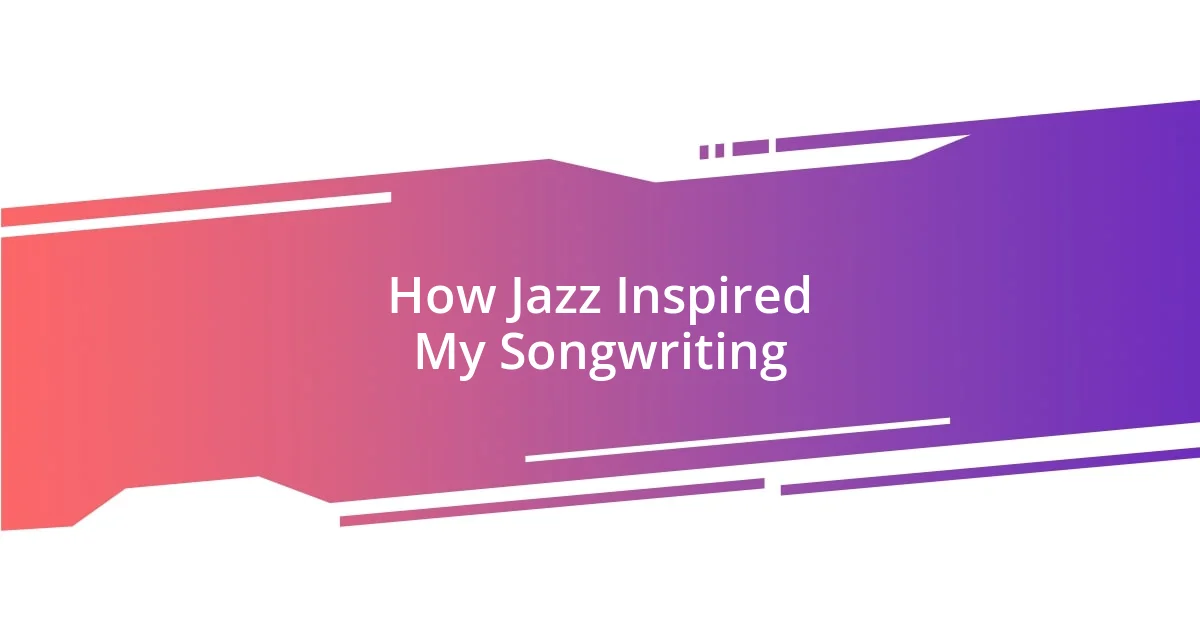
How Jazz Inspired My Songwriting
Jazz’s influence on my songwriting is profound and multi-faceted. I recall sitting at my piano, inspired by a late-night jam session I attended. The improvisational nature of those musicians sparked a fire within me; I began to explore melodies and harmonies that emerged organically, breaking free from the confines of traditional structures. It was exhilarating to embrace that spontaneity, allowing my emotions to shape my music in real-time.
Another pivotal moment for me was the first time I wrote lyrics influenced by a jazz standard. I wanted to capture that unique storytelling essence. I crafted verses that mirrored jazz’s ebb and flow, weaving in syncopation and unexpected rhymes. The process felt liberating, almost like dancing on a tightrope between chaos and order. It taught me that vulnerability in songwriting can resonate deeply with listeners, much like the heartfelt solos of jazz greats.
I’ve also learned to value the pauses in my music, inspired by the way jazz musicians create tension and release. One particular song I wrote features a deliberate silence before the chorus, mirroring the suspense I felt during a live performance when a soloist held a note just a moment longer. That moment created an electric atmosphere, and I knew I wanted to replicate that feeling in my own work. Jazz has taught me that sometimes what you don’t play can be just as powerful as the notes you choose to include.
| Jazz Influence | Songwriting Impact |
|---|---|
| Improvisation | Encouraged spontaneous melody creation |
| Lyrical storytelling | Emphasized emotional connection through lyrics |
| Use of silence | Created tension and anticipation in my compositions |
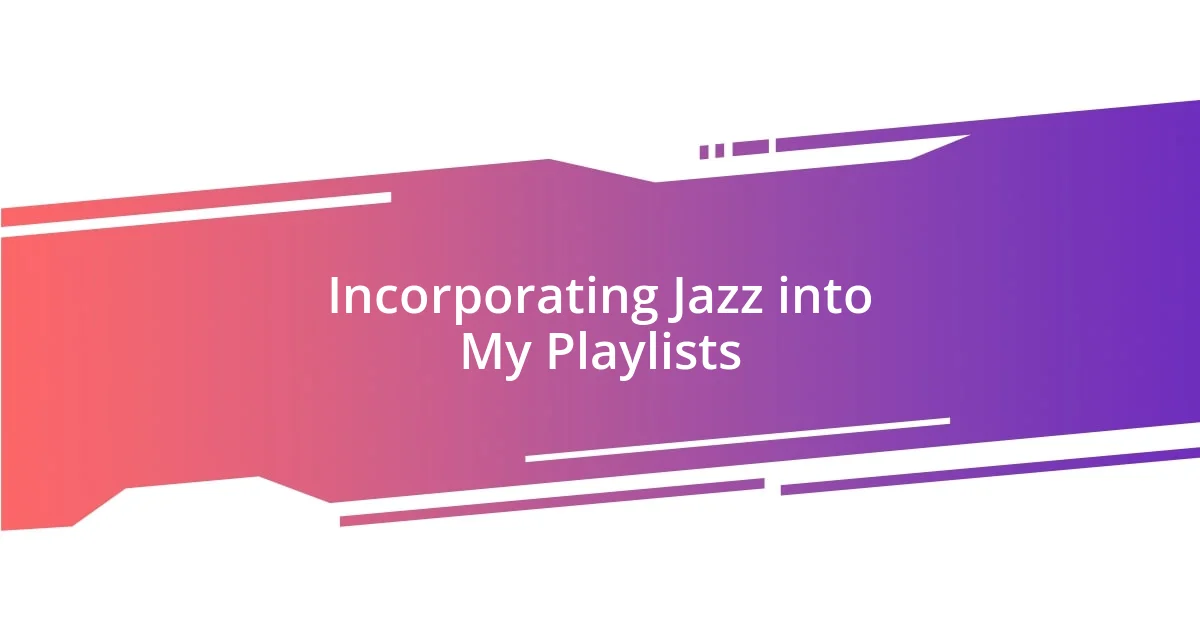
Incorporating Jazz into My Playlists
Incorporating jazz into my playlists has transformed my listening experience. I often find myself digging through classic records and modern jazz explorations alike, seeking the perfect blend of improvisation and emotional depth. There’s something about the unpredictable nature of jazz that keeps my playlists dynamic and exciting.
I remember curating a specific playlist for a road trip, and jazz became my soundtrack as the sun dipped below the horizon. Each track flowed seamlessly into the next, painting vivid landscapes in my mind. The smooth melodies of Miles Davis paired perfectly with the vibrant scenery outside my window, making me feel profoundly connected to the moment. Have you ever found a song that just captures a feeling so perfectly? That’s the magic of jazz—it transcends time and space.
Sometimes, I venture into incorporating contemporary jazz artists who infuse their music with modern elements, like beats and electronic sounds. Listening to artists like Kamasi Washington not only immerses me in rich harmonies but also challenges my perception of genre boundaries. It raises an intriguing question: How does blending jazz with other styles enhance the listening experience? For me, it opens up a world of creativity, illustrating that jazz isn’t just a genre; it’s a versatile art form that continues to evolve and inspire.
